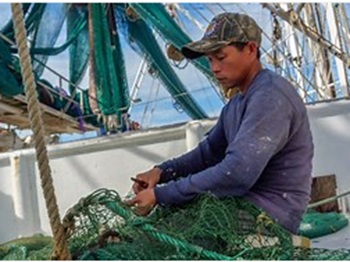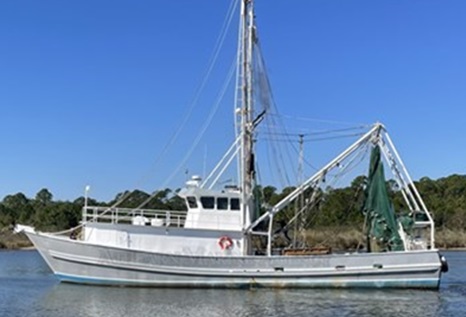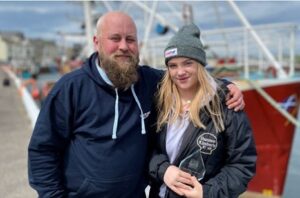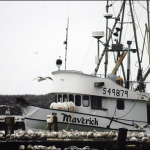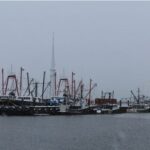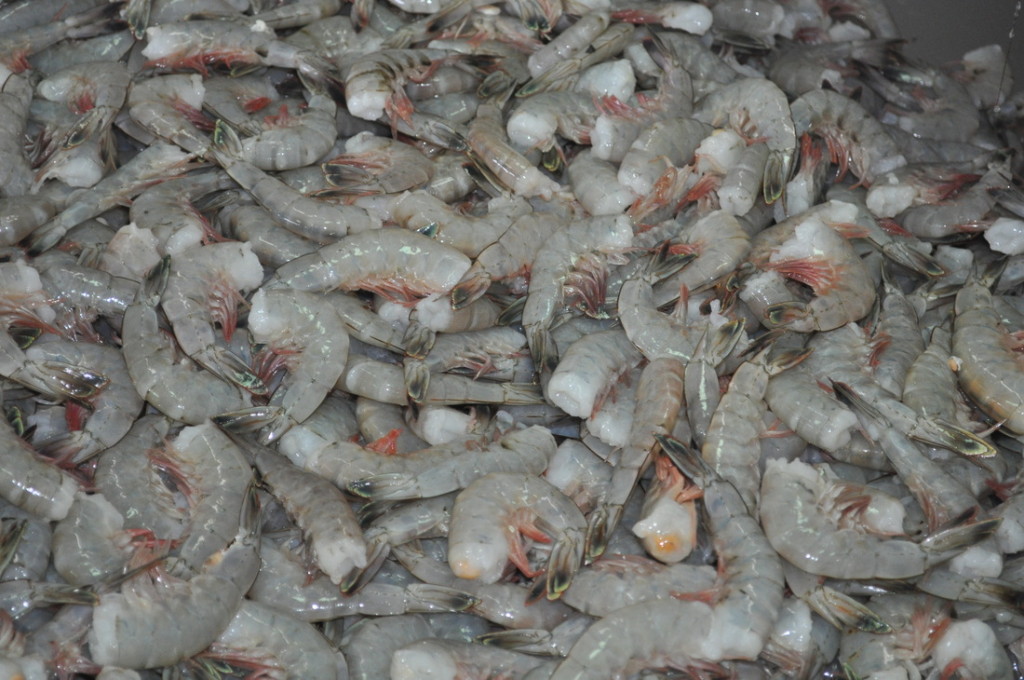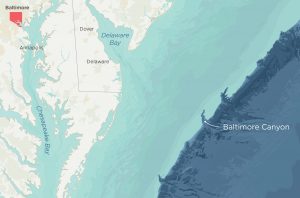Monthly Archives: November 2023
77-foot fishing boat runs aground on Jersey Shore beach
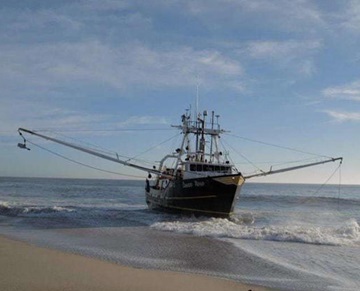 Firefighters and emergency workers rescued three people from a 77-foot fishing boat that ran aground in Point Pleasant Beach early Friday, officials said. A fourth person was already out of the fishing vessel Susan Rose when firefighters and EMS arrived on the beach about three blocks south of the Manasquan Inlet, Point Pleasant Beach Fire Chief Ira Waldman said. The Coast Guard received a report about the beached boat shortly before 5 a.m. and sent a boat to assist, a spokesman said. >>click to read<< 09:09
Firefighters and emergency workers rescued three people from a 77-foot fishing boat that ran aground in Point Pleasant Beach early Friday, officials said. A fourth person was already out of the fishing vessel Susan Rose when firefighters and EMS arrived on the beach about three blocks south of the Manasquan Inlet, Point Pleasant Beach Fire Chief Ira Waldman said. The Coast Guard received a report about the beached boat shortly before 5 a.m. and sent a boat to assist, a spokesman said. >>click to read<< 09:09
When a Coast Guard helicopter crashed in Southeast Alaska, first on the scene were the helicopter crashed it came to rescue
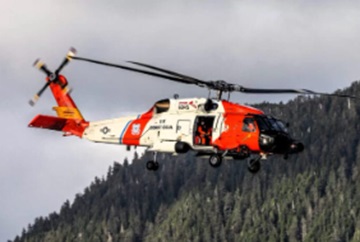 The first people at the scene of Monday night’s crash of an Air Station Sitka helicopter were the crew of the distressed fishing vessel it was sent to assist. The two brothers aboard the Lydia Marie played a critical role in the rescue of the downed air crew. Logan Padgett is the captain of the Lydia Marie, a 44-foot wooden troller based in Wrangell. The Lydia Marie began taking on water around 8 p.m. Monday in the rough seas of Frederick Sound. Padgett sent out a mayday and steered for the protected northern shore of Read Island in Farragut Bay. >>click to read<< 08:05
The first people at the scene of Monday night’s crash of an Air Station Sitka helicopter were the crew of the distressed fishing vessel it was sent to assist. The two brothers aboard the Lydia Marie played a critical role in the rescue of the downed air crew. Logan Padgett is the captain of the Lydia Marie, a 44-foot wooden troller based in Wrangell. The Lydia Marie began taking on water around 8 p.m. Monday in the rough seas of Frederick Sound. Padgett sent out a mayday and steered for the protected northern shore of Read Island in Farragut Bay. >>click to read<< 08:05
Ordinary Heroes: Fishermen Turn Rescuers in Treacherous Seas – In the midst of a treacherous night at sea, the crew of the fishing vessel Lydia Marie found themselves unexpectedly shifting roles from the ones in need of rescue to becoming the rescuers. Captain Logan Padgett and his younger brother, ordinary fishermen, were thrust into action to aid the downed air crew of an Air Station Sitka helicopter. >>click to read<< 11:24
Politicians Come Out Against Gulf of Maine Offshore Wind Proposal
 U.S. Sens. Susan Collins and Angus King, Reps. Jared Golden and Chellie Pingree, and Maine Gov. Janet Mills have sent a letter to the Bureau of Ocean Energy Management (BOEM), urging them to completely exclude Lobster Management Area 1 (LMA 1) from the Wind Energy Area (WEA) for potential wind power development in the Gulf of Maine. The lawmakers and governor assert that “clean energy can offer economic and environmental benefits for Maine that must be pursued prudently and responsibly with a commitment to minimizing to the greatest extent possible the impact on fishermen, recreation and other crucial ocean uses that are critical to Maine.” >>click o read<< 07:14
U.S. Sens. Susan Collins and Angus King, Reps. Jared Golden and Chellie Pingree, and Maine Gov. Janet Mills have sent a letter to the Bureau of Ocean Energy Management (BOEM), urging them to completely exclude Lobster Management Area 1 (LMA 1) from the Wind Energy Area (WEA) for potential wind power development in the Gulf of Maine. The lawmakers and governor assert that “clean energy can offer economic and environmental benefits for Maine that must be pursued prudently and responsibly with a commitment to minimizing to the greatest extent possible the impact on fishermen, recreation and other crucial ocean uses that are critical to Maine.” >>click o read<< 07:14
Seafood-pricing system is flawed and a new one needs to be in place by end of January, says report
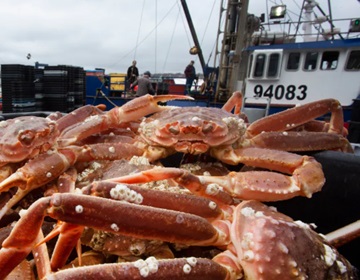 A new report from the Newfoundland and Labrador government says the current seafood price-setting process is flawed, and it outlines the need for a formula-based system that would improve the industry for harvesters and plant owners. The report was sparked by a tie-up in the spring that delayed the start of the snow crab fishery. Prices were set at just $2.20 per pound at the start of the season, and the Fish, Food & Allied Workers union and Association of Seafood Producers failed to produce an agreeable pricing formula. It says the current process for price setting, which is done by a panel, is flawed — and that the panel has an “impossible task” when faced with a fluctuating market. >>click to read<< 17:56
A new report from the Newfoundland and Labrador government says the current seafood price-setting process is flawed, and it outlines the need for a formula-based system that would improve the industry for harvesters and plant owners. The report was sparked by a tie-up in the spring that delayed the start of the snow crab fishery. Prices were set at just $2.20 per pound at the start of the season, and the Fish, Food & Allied Workers union and Association of Seafood Producers failed to produce an agreeable pricing formula. It says the current process for price setting, which is done by a panel, is flawed — and that the panel has an “impossible task” when faced with a fluctuating market. >>click to read<< 17:56
Laurieton community rallies to save sunken historic fishing vessel Pacific Venture
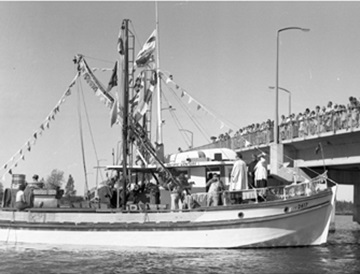 A community is rallying to save a piece of maritime history in northern New South Wales, with efforts underway to save a 60-year-old fishing trawler from a watery grave in a local river. The sunken Pacific Venture is the last surviving vessel from a fishing fleet built in Laurieton in 1963. Earlier this year it was entrusted to the community, with plans to bring it back to its former glory and put it on display. But the restoration work was yet to begin when a storm tore through the region in late October, and the old boat sank in the Camden Haven River at Laurieton. Former owner Damien Lay said the task was proving challenging but many in the community were still determined to save the old boat. Vide, photos, >>click to read<< 15:58
A community is rallying to save a piece of maritime history in northern New South Wales, with efforts underway to save a 60-year-old fishing trawler from a watery grave in a local river. The sunken Pacific Venture is the last surviving vessel from a fishing fleet built in Laurieton in 1963. Earlier this year it was entrusted to the community, with plans to bring it back to its former glory and put it on display. But the restoration work was yet to begin when a storm tore through the region in late October, and the old boat sank in the Camden Haven River at Laurieton. Former owner Damien Lay said the task was proving challenging but many in the community were still determined to save the old boat. Vide, photos, >>click to read<< 15:58
Scotland fishing: Inshore limit called for following HPMA debacle
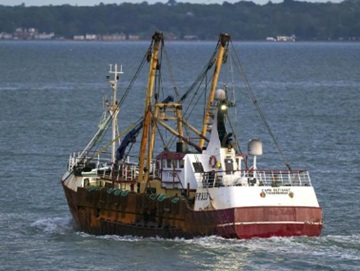 An open letter written by a commercial fisherman has called for restrictions to curb more damaging forms of fishing in inshore waters. Alistair Philp, National Coordinator of the Scottish Creel Fishermen’s Federation, writes: “Now that the threat of the poorly thought-out Highly Protected Marine Area (HPMA) proposals has passed, it is time to have a sensible debate about the alternative options.” The letter issued on behalf of the Our Seas coalition, which includes a wide range of coastal organisations, describes a need to “reverse the decades of mismanagement that has already hollowed out much of our inshore fishing industry.” It argues for the reinstatement of an inshore limit akin to or like the historic Inshore limit called for – designed to preserve fish nursery and spawning grounds – such as was in place until 1984. >>click to read<< 14:01
An open letter written by a commercial fisherman has called for restrictions to curb more damaging forms of fishing in inshore waters. Alistair Philp, National Coordinator of the Scottish Creel Fishermen’s Federation, writes: “Now that the threat of the poorly thought-out Highly Protected Marine Area (HPMA) proposals has passed, it is time to have a sensible debate about the alternative options.” The letter issued on behalf of the Our Seas coalition, which includes a wide range of coastal organisations, describes a need to “reverse the decades of mismanagement that has already hollowed out much of our inshore fishing industry.” It argues for the reinstatement of an inshore limit akin to or like the historic Inshore limit called for – designed to preserve fish nursery and spawning grounds – such as was in place until 1984. >>click to read<< 14:01
Kongsberg Discovery Partners with Arctic Storm for Advanced US-built Trawler-processor
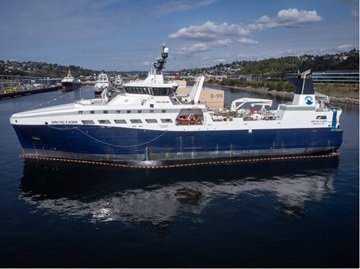 The first US-built trawler-processor for Alaskan pollock in over three decades is now undergoing sea trials in the Northern Pacific, testing an integrated technology package from Kongsberg Discovery tailored to locate, inspect, and engage fish with unparalleled efficiency. The 100-meter-long Arctic Fjord, designed by Kongsberg Maritime and built by Louisiana’s Thoma-Sea Marine Constructor, will start full-time operations for 2024’s pollock A season in the Bering Sea. “The Arctic Fjord sets a new benchmark for the Alaskan pollock fleet,” Woodruff comments. “From its fuel-efficient design to the outstanding crew accommodation and state-of-the-art onboard processing facilities, every element has been cherry picked to not just do the job, but to do it to the highest possible standards. >>click to read<< 09:50
The first US-built trawler-processor for Alaskan pollock in over three decades is now undergoing sea trials in the Northern Pacific, testing an integrated technology package from Kongsberg Discovery tailored to locate, inspect, and engage fish with unparalleled efficiency. The 100-meter-long Arctic Fjord, designed by Kongsberg Maritime and built by Louisiana’s Thoma-Sea Marine Constructor, will start full-time operations for 2024’s pollock A season in the Bering Sea. “The Arctic Fjord sets a new benchmark for the Alaskan pollock fleet,” Woodruff comments. “From its fuel-efficient design to the outstanding crew accommodation and state-of-the-art onboard processing facilities, every element has been cherry picked to not just do the job, but to do it to the highest possible standards. >>click to read<< 09:50
Red herring? Facing off over the sustainability of B.C.’s herring fishery
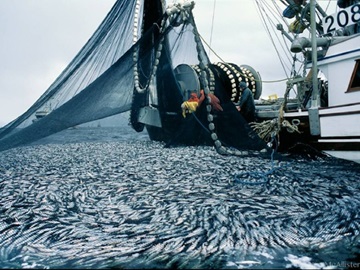 Calls for a last-minute moratorium are intensifying as the start of Pacific herring season in the Straight of Georgia approaches on Nov.24. Concerns are resurfacing among some citizens as they fear the potential impact of these fisheries on the province’s herring stock. According to Jim Shortreed, a Victoria-based herring enhancement volunteer, these numbers are unsustainable. When asked what would be the ideal biomass, the marine specialist couldn’t define the exact number. Ronnie Chickite, elected Chief of the region’s We Wai Kai Nation and herring fisherman with nearly three decades of experience, disagreed with Dixon’s assessment. >>click to read<< 08:52
Calls for a last-minute moratorium are intensifying as the start of Pacific herring season in the Straight of Georgia approaches on Nov.24. Concerns are resurfacing among some citizens as they fear the potential impact of these fisheries on the province’s herring stock. According to Jim Shortreed, a Victoria-based herring enhancement volunteer, these numbers are unsustainable. When asked what would be the ideal biomass, the marine specialist couldn’t define the exact number. Ronnie Chickite, elected Chief of the region’s We Wai Kai Nation and herring fisherman with nearly three decades of experience, disagreed with Dixon’s assessment. >>click to read<< 08:52
Maine lobsterman catches split lobster that is half-male, half-female
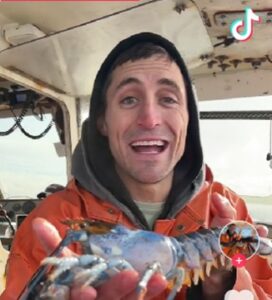 A Maine lobsterman with two million followers on TikTok is likely to get even more views after he posted a video of what he calls the “coolest lobster” he has ever seen Jacob Knowles posted several videos on his TikTok discussing the lobster he found. “Not only is it split 50-50 right down its back, blue and normal, but if you look underneath, it’s actually half male, half female. The blue side is a male and the normal side is a female,” Knowles discussed in his video. >>click to read/watch<< 07:27
A Maine lobsterman with two million followers on TikTok is likely to get even more views after he posted a video of what he calls the “coolest lobster” he has ever seen Jacob Knowles posted several videos on his TikTok discussing the lobster he found. “Not only is it split 50-50 right down its back, blue and normal, but if you look underneath, it’s actually half male, half female. The blue side is a male and the normal side is a female,” Knowles discussed in his video. >>click to read/watch<< 07:27
Deadly fentanyl raises stakes for addicted fishermen
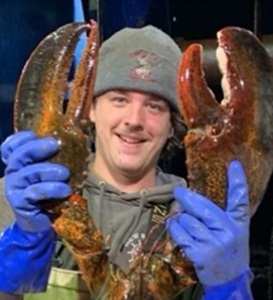
New Bedford fisherman Michael Kennedy, who died from a fentanyl overdose in 2022 at the age of 32. Photo provided by family.
Drug addiction is not new in the fishing industry. There is a tragic and long-understood pattern of fishermen using opiates or amphetamines to manage the chronic pain and endless hours that come with hard labor deep at sea. But the introduction of fentanyl has altered this pattern. In recent years, both fishermen and addiction counselors in the area say drug use has actually tended to be less pervasive on the waterfront than at any other point in the last few decades. Captains say they are more strict about enforcing a “zero tolerance” policy on their vessels, due to the high risk of fentanyl overdoses leading to death. Many keep Narcan, the opioid-overdose antidote, stocked on their boats and are aware of the outreach programs available to fishermen. But fentanyl has raised the stakes for fishermen continuing to struggle with addiction. >>click to read<< 15:59
Athearn Marine Agency Boat of the Week: 86′ Steel Shrimper/Trawler, CAT 3408B, 4 Blade wheel/Kort Nozzle
To review specifications, information, and photos’, >click here<, To see all the boats in this series, >click here< 14:00
Coalition files intent to sue federal agencies to stop whale-killing Virginia wind project
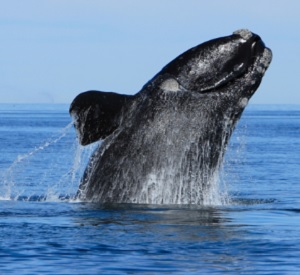 The Committee for a Constructive Tomorrow (CFACT) and The Heartland Institute today announced that they were filing with the Bureau of Ocean Energy Management (BOEM) and the National Marine Fisheries Service (NMFS) a 60 Day Notice of Intent to Sue letter for a violation of the Endangered Species Act. The violation is contained in a defective “biological opinion,” which authorizes the construction of the Virginia Offshore Wind Project (VOW). The 60-day notice is required by the Endangered Species Act (ESA) for parties who wish to commence litigation against BOEM for failure to provide adequate protection of the North Atlantic right whale and other endangered species. The North Atlantic right whale is listed as “critically endangered” by the governments of both the Commonwealth of Virginia and the United States. >>click to read<< 12:23
The Committee for a Constructive Tomorrow (CFACT) and The Heartland Institute today announced that they were filing with the Bureau of Ocean Energy Management (BOEM) and the National Marine Fisheries Service (NMFS) a 60 Day Notice of Intent to Sue letter for a violation of the Endangered Species Act. The violation is contained in a defective “biological opinion,” which authorizes the construction of the Virginia Offshore Wind Project (VOW). The 60-day notice is required by the Endangered Species Act (ESA) for parties who wish to commence litigation against BOEM for failure to provide adequate protection of the North Atlantic right whale and other endangered species. The North Atlantic right whale is listed as “critically endangered” by the governments of both the Commonwealth of Virginia and the United States. >>click to read<< 12:23
Man sues business partner over fishing boat
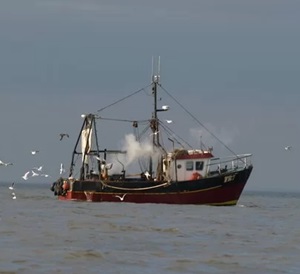 A man has sued a business partner over the purchase of a shrimp trawler. Abraham Nguyen filed his complaint October 30 in federal court against F/V Kim Thu and TNL Fishery. In the lawsuit, Nguyen says Loi Hang “wanted to purchase a shrimp trawler in Louisiana and wanted Nguyen to convert it into a long-line tuna boat capable of operating off the coast of Hawaii.” Hang is one of two owners of Hawaii-based TNL Fishery along with Cindy Nguyen, who is not related to the plaintiff. Nguyen, who is a welder, previously had converted another shrimp trawler for Hang, the suit states. >>click to read<< 10:37
A man has sued a business partner over the purchase of a shrimp trawler. Abraham Nguyen filed his complaint October 30 in federal court against F/V Kim Thu and TNL Fishery. In the lawsuit, Nguyen says Loi Hang “wanted to purchase a shrimp trawler in Louisiana and wanted Nguyen to convert it into a long-line tuna boat capable of operating off the coast of Hawaii.” Hang is one of two owners of Hawaii-based TNL Fishery along with Cindy Nguyen, who is not related to the plaintiff. Nguyen, who is a welder, previously had converted another shrimp trawler for Hang, the suit states. >>click to read<< 10:37
EU review gives Wicklow skipper CJ Gaffney hope as home support wanes
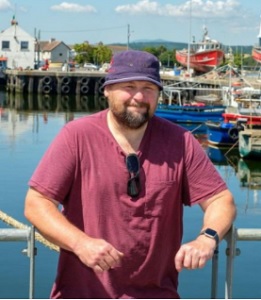 After being shown a glimmer of hope in his ongoing quest for justice via an EU safety review, Arklow skipper CJ Gaffney has slammed the support he has received from Irish representatives, saying: “When the EU is helping you but your own reps aren’t, something is seriously wrong”.In 2007, CJ purchased the Dutch trawler ‘Mary Kate’ and subsequently found she had serious stability issues, which made the boat uninsurable. After trying to take legal action in Holland and Germany (as she was German registered) without success, he took out a loan to cover the considerable cost of fixing the boat. Despite finishing the repairs in 2012, CJ had been unable to earn a living fishing the boat for so long that he was now forced to sell. A UK buyer was found, but due to the boat’s history, she could not be registered with the UK fishing fleet. >>click to read<< 09:47
After being shown a glimmer of hope in his ongoing quest for justice via an EU safety review, Arklow skipper CJ Gaffney has slammed the support he has received from Irish representatives, saying: “When the EU is helping you but your own reps aren’t, something is seriously wrong”.In 2007, CJ purchased the Dutch trawler ‘Mary Kate’ and subsequently found she had serious stability issues, which made the boat uninsurable. After trying to take legal action in Holland and Germany (as she was German registered) without success, he took out a loan to cover the considerable cost of fixing the boat. Despite finishing the repairs in 2012, CJ had been unable to earn a living fishing the boat for so long that he was now forced to sell. A UK buyer was found, but due to the boat’s history, she could not be registered with the UK fishing fleet. >>click to read<< 09:47
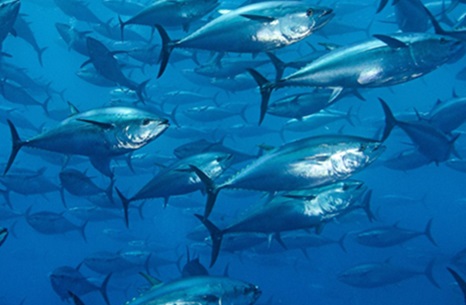
Bluefin Tuna Get It On off North Carolina
In November 1981, a fleet of briefcase-toting lobbyists, scientists, and political negotiators gathered in sunny Tenerife, Spain, to decide the fate of Atlantic bluefin tuna. Representing more than a dozen countries, including Canada, the United States, Spain, and Italy, the besuited men knew crisis loomed. Since the early 1970s, rising global demand for bluefin flesh had spurred fishing fleets—hailing from ports on both sides of the Atlantic Ocean—to kill untold thousands of the wide-ranging predator every year. Under this heavy fishing pressure, primarily driven by the Japanese appetite for sushi-grade tuna, the species careened toward collapse. During the meeting in Tenerife, the American delegation to the International Commission for the Conservation of Atlantic Tunas proposed a disarmingly simple solution: they would draw a line down the middle of the Atlantic Ocean and split the bluefin into two separate stocks. >>click to read<< 08:19
Limits on ratio of fisherman decried
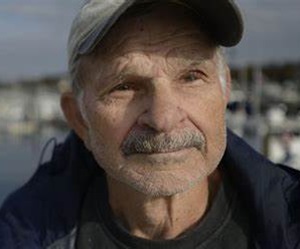 Gloucester Capt. Salvatore “Sam” Novello who has fished the waters off Gloucester for most of his life, is saying while he can fish, some foreign-born fishermen cannot. A member of the Gloucester Fisheries Commission, Novello said this week the U.S. Coast Guard has recently begun to strictly enforce a rule that limits the number of immigrants who are allowed to fish. The measure, the 75-25 rule, requires that 75% of those crews fishing must be American while only 25% can be foreign. In other words, for every four fishermen, three must be native born and only one can hail from another country. Novello blasted the rule as burdensome, saying it only contributes to a slew of other regulations and fishing limits already imposed by NOAA Fisheries that hamper the fishing industry. “Today, all fishing operations can’t find enough help to go fishing,” he said. “ >>click to read<< 07:21
Gloucester Capt. Salvatore “Sam” Novello who has fished the waters off Gloucester for most of his life, is saying while he can fish, some foreign-born fishermen cannot. A member of the Gloucester Fisheries Commission, Novello said this week the U.S. Coast Guard has recently begun to strictly enforce a rule that limits the number of immigrants who are allowed to fish. The measure, the 75-25 rule, requires that 75% of those crews fishing must be American while only 25% can be foreign. In other words, for every four fishermen, three must be native born and only one can hail from another country. Novello blasted the rule as burdensome, saying it only contributes to a slew of other regulations and fishing limits already imposed by NOAA Fisheries that hamper the fishing industry. “Today, all fishing operations can’t find enough help to go fishing,” he said. “ >>click to read<< 07:21
Coast Guard helicopter crash in Southeast Alaska injures 4 crew members
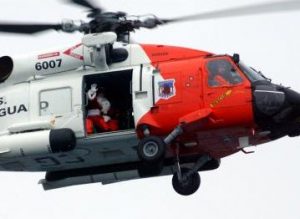 A U.S. Coast Guard helicopter crashed late Monday on an island in Southeast Alaska, and all four people aboard survived, officials said. The Sitka-based MH-60T Jayhawk helicopter crashed on Read Island during a search and rescue mission, U.S. Coast Guard Alaska wrote in a statement Tuesday. The crew members were being treated for serious injuries, the statement said. A crashed on Read Islandfishing vessel reported the crash around 11:05 p.m., according to the statement. The boat had been flooding and was receiving help from the Coast Guard. Two Coast Guard cutters responded to the area to help the flooding fishing vessel and established a security zone around the helicopter crash, the statement said. This is a developing story. >>click to read<< 15:59
A U.S. Coast Guard helicopter crashed late Monday on an island in Southeast Alaska, and all four people aboard survived, officials said. The Sitka-based MH-60T Jayhawk helicopter crashed on Read Island during a search and rescue mission, U.S. Coast Guard Alaska wrote in a statement Tuesday. The crew members were being treated for serious injuries, the statement said. A crashed on Read Islandfishing vessel reported the crash around 11:05 p.m., according to the statement. The boat had been flooding and was receiving help from the Coast Guard. Two Coast Guard cutters responded to the area to help the flooding fishing vessel and established a security zone around the helicopter crash, the statement said. This is a developing story. >>click to read<< 15:59
Three Indigenous-owned businesses given leg up into NSW fishing industry in attempt to close the gap
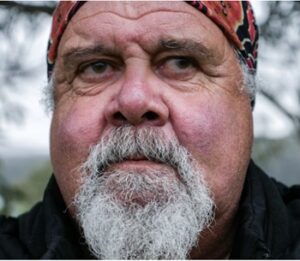 Yuin man Wally Stewart says he has been fighting for 40 years to get his people a seat at the table of the commercial fishing industry on the New South Wales south coast. Today he is a step closer. Mr Stewart is a director of Joonga Land and Water Aboriginal Corporation, one of three Aboriginal community-owned businesses selected by the NSW government to receive support to break into the commercial fishing sector. Mr Stewart is part of a group seeking native title rights over more than 450 kilometres of coastline along the south coast. He hopes to let the Yuin people carry out their cultural fishing practices. “South coast people are coastal people,” he said. “For thousands of years, we’ve relied on our ocean and estuaries for food; our mob were taught to fish and to live and look after our oceans. >>click to read<< 14:45
Yuin man Wally Stewart says he has been fighting for 40 years to get his people a seat at the table of the commercial fishing industry on the New South Wales south coast. Today he is a step closer. Mr Stewart is a director of Joonga Land and Water Aboriginal Corporation, one of three Aboriginal community-owned businesses selected by the NSW government to receive support to break into the commercial fishing sector. Mr Stewart is part of a group seeking native title rights over more than 450 kilometres of coastline along the south coast. He hopes to let the Yuin people carry out their cultural fishing practices. “South coast people are coastal people,” he said. “For thousands of years, we’ve relied on our ocean and estuaries for food; our mob were taught to fish and to live and look after our oceans. >>click to read<< 14:45
Opening of season proves bay scallops are hard to find
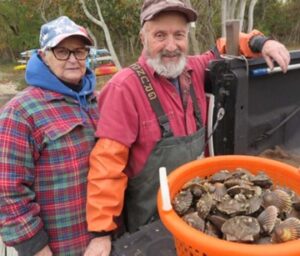 While the rest of us admire fall foliage, North Fork baymen look to nature for signs that predict the health of adult bay scallops. They watch the docks and parking lots to see if they are littered with broken scallop shells dropped and picked over by gulls; a good sign. They scan the beaches after a strong wind to see if scallops have washed up, another good sign. This year, once again, the signs were not encouraging. The bay scallop season, which started Monday in New York and runs through March, looks to be just as bad this year as it has been for the past four, which means the most reliable way to get a bay scallop dinner is to know a fisherman — and the most reliable way for a fisherman to make a living is to fish for something else. >>click to read<< 13:03
While the rest of us admire fall foliage, North Fork baymen look to nature for signs that predict the health of adult bay scallops. They watch the docks and parking lots to see if they are littered with broken scallop shells dropped and picked over by gulls; a good sign. They scan the beaches after a strong wind to see if scallops have washed up, another good sign. This year, once again, the signs were not encouraging. The bay scallop season, which started Monday in New York and runs through March, looks to be just as bad this year as it has been for the past four, which means the most reliable way to get a bay scallop dinner is to know a fisherman — and the most reliable way for a fisherman to make a living is to fish for something else. >>click to read<< 13:03
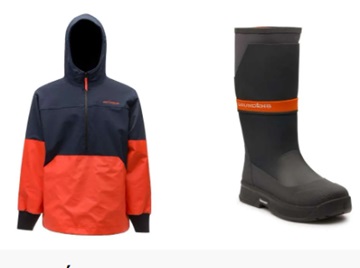
Grundéns Unveils Innovative New Offerings for Commercial Fisherman
Grundéns is proud to introduce its latest range of innovative new products designed with the extreme demands of commercial fishermen squarely in mind. With nearly 100 years of hard earned know how protecting commercial fisherman from the harshest conditions imaginable, Grundéns relentless pursuit to create the worlds most trusted gear can be seen throughout these new products. Leading their new offerings is the Crewman Tall boot, engineered in partnership with Michelin® who helped develop the outsole of the new Crewman Tall boot. >>click to read<< 11:25
Lawmakers form Seafood Caucus to help Louisiana fishermen
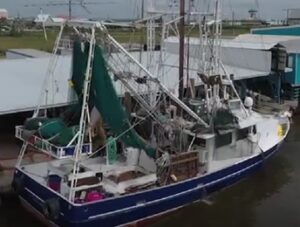 Consumers likely don’t think twice about where the shrimp or seafood bought at grocery store comes from, but Louisiana fisherman—and now federal lawmakers—are asking people to pay attention. “We’re losing an industry and a culture and a way of life in Louisiana and across the country,” said Acy Cooper, who comes from a long line of shrimpers. He says what was once a reliable profession has now become heartache. It’s not just a problem in Louisiana—which is why lawmakers from all four of the country’s coasts are joining together to find a solution. Video, >>click to read<< 10:28
Consumers likely don’t think twice about where the shrimp or seafood bought at grocery store comes from, but Louisiana fisherman—and now federal lawmakers—are asking people to pay attention. “We’re losing an industry and a culture and a way of life in Louisiana and across the country,” said Acy Cooper, who comes from a long line of shrimpers. He says what was once a reliable profession has now become heartache. It’s not just a problem in Louisiana—which is why lawmakers from all four of the country’s coasts are joining together to find a solution. Video, >>click to read<< 10:28
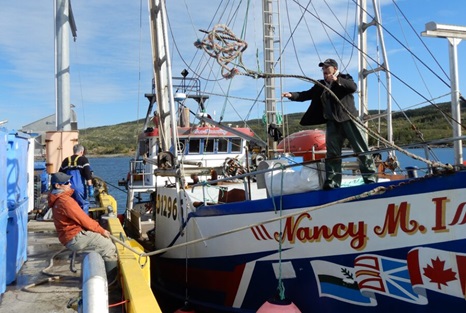
Northern cod numbers may have moved out of critical zone, says federal scientist
Captain Alex Saunders has more experience fishing northern cod than most fishermen. At 81 years old, the fishing captain has fished for cod off the Labrador coast for six decades. This year, he says, was a banner year for that fishery. “There were no codfish in northern Labrador for about 60 years, but this summer the cod were all along the Labrador coast from Blanc Sablan in the south to north of Nain,” Mr. Saunders says. A good catch rate this season meant Mr. Saunders’s crew hauled in 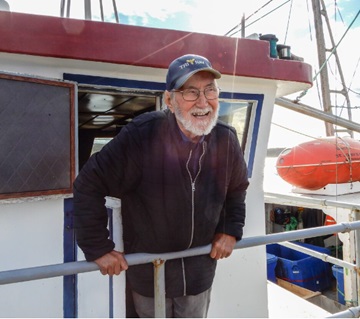 gillnets every day for weeks, returning to communities such as Pinsent’s Arm, a fishing town of about 50 people along the Labrador coast, to land cod at the wharf. But the season’s quick success also meant its early closing. “On a Friday afternoon they said, ‘Get your gear out of the water Sunday by six o’clock,’” Mr. Saunders says of the Department of Fisheries and Oceans’ (DFO) decision to shut down the fall northern cod stewardship fishery weeks earlier than planned – a measure to ensure fishing did not exceed season limits. Photos, >>click to read<< 08:33
gillnets every day for weeks, returning to communities such as Pinsent’s Arm, a fishing town of about 50 people along the Labrador coast, to land cod at the wharf. But the season’s quick success also meant its early closing. “On a Friday afternoon they said, ‘Get your gear out of the water Sunday by six o’clock,’” Mr. Saunders says of the Department of Fisheries and Oceans’ (DFO) decision to shut down the fall northern cod stewardship fishery weeks earlier than planned – a measure to ensure fishing did not exceed season limits. Photos, >>click to read<< 08:33
Canada, Nova Scotia move to improve fishing vessel safety
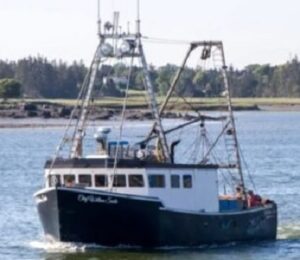 On the eve of the most lucrative fishery in Canada, federal and provincial authorities are ramping up fishing vessel inspections in Nova Scotia seeking proof of safety procedures and annual inspections of hoists and other lifting devices. Lobster season in southwest Nova Scotia opens in two weeks. Some of the increased scrutiny is being attributed to the sinking of the Chief William Saulis, a scallop dragger that went down in heavy seas near Digby in December 2020. All six men on board died. Transport Canada has served notice that its marine inspectors want to see written safety procedures on board and proof crew members are familiar with them. “Failure will result in a deficiency notice or detention of the vessel,” says spokesperson Sau Sau Liu. Video,>>click to read<< 07:08
On the eve of the most lucrative fishery in Canada, federal and provincial authorities are ramping up fishing vessel inspections in Nova Scotia seeking proof of safety procedures and annual inspections of hoists and other lifting devices. Lobster season in southwest Nova Scotia opens in two weeks. Some of the increased scrutiny is being attributed to the sinking of the Chief William Saulis, a scallop dragger that went down in heavy seas near Digby in December 2020. All six men on board died. Transport Canada has served notice that its marine inspectors want to see written safety procedures on board and proof crew members are familiar with them. “Failure will result in a deficiency notice or detention of the vessel,” says spokesperson Sau Sau Liu. Video,>>click to read<< 07:08
SME universe | The multi-fishing boat that will make a difference
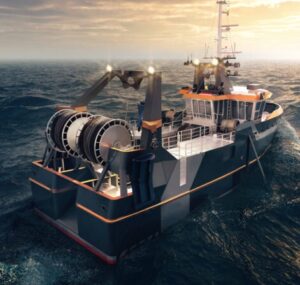 Engineers Hubert Simard and Jean-Nil Poirier Morissette, from the naval architecture firm Navanex, spent ten days in the North Atlantic in January 2023 as crew on a fishing vessel of their design, in order to fully immerse themselves in life on board. “We had a good understanding of how fishermen fish,” says Hubert Simard, project manager at Navanex, “but we decided to do a field experiment to really understand and feel it. They felt. Ten days of labor and Gravol. Winds of 55 knots. Swells up to 7 meters. And they learned. A lot. “It took us a couple of days to get over it, but after that we knew what we were talking about. >>click to read<< 16:40
Engineers Hubert Simard and Jean-Nil Poirier Morissette, from the naval architecture firm Navanex, spent ten days in the North Atlantic in January 2023 as crew on a fishing vessel of their design, in order to fully immerse themselves in life on board. “We had a good understanding of how fishermen fish,” says Hubert Simard, project manager at Navanex, “but we decided to do a field experiment to really understand and feel it. They felt. Ten days of labor and Gravol. Winds of 55 knots. Swells up to 7 meters. And they learned. A lot. “It took us a couple of days to get over it, but after that we knew what we were talking about. >>click to read<< 16:40
Commercial Fisherman William ‘Buzz/Buzzer’ Alexander Ropes III, of Round Pound, has passed away
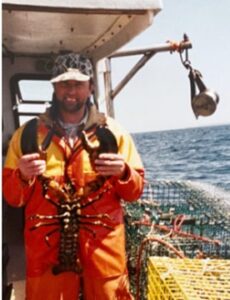 On the evening of Oct. 26, 2023, Buzz Ropes passed away peacefully. Buzz was born Feb. 27, 1948 in Montclair, N.J., to Bertah Whitney “Bud” and William A. Ropes II “Bill.” Shortly after, Bill introduced his wife and son to his beloved state of Maine, driving from New Jersey in a model T Ford. Buzz spent his childhood in Round Pond with his sisters, Susan and Claudia. After graduating, Buzz spent the majority of his time on the water. His mentor, Cheever Prentice, instilled a passion for fishing and lobstering. He learned much from “Cheevah” while working as his sternman aboard F/V Harmony. It was this experience that shaped his future on the water. Buzz had a very successful career as a commercial fisherman spanning over 37 years and three boats: F/V Karen R., F/V Great Spirit, and F/V Harmony..>>click to read<< 14:34
On the evening of Oct. 26, 2023, Buzz Ropes passed away peacefully. Buzz was born Feb. 27, 1948 in Montclair, N.J., to Bertah Whitney “Bud” and William A. Ropes II “Bill.” Shortly after, Bill introduced his wife and son to his beloved state of Maine, driving from New Jersey in a model T Ford. Buzz spent his childhood in Round Pond with his sisters, Susan and Claudia. After graduating, Buzz spent the majority of his time on the water. His mentor, Cheever Prentice, instilled a passion for fishing and lobstering. He learned much from “Cheevah” while working as his sternman aboard F/V Harmony. It was this experience that shaped his future on the water. Buzz had a very successful career as a commercial fisherman spanning over 37 years and three boats: F/V Karen R., F/V Great Spirit, and F/V Harmony..>>click to read<< 14:34
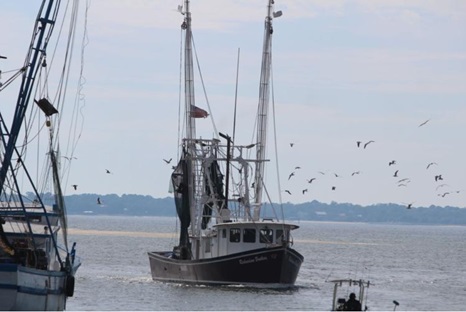
The Fleet fights back: Fishermen unite to curb shrimp dumping
Mount Pleasant’s Economic Development Committee met on Nov. 6 and voted in favor of the proposed economic disaster declaration from the South Carolina Shrimper’s Association and Southern Shrimp Alliance that asserts the Mount Pleasant shrimping fleet can’t sustain itself due to the harmful impacts of shrimp dumping, or the flooding of the market with imported, non-domestic shrimp. Mount Pleasant is the second municipality in South Carolina to declare a state of economic disaster for the domestic shrimping industry. Bryan Jones, vice president of the South Carolina Shrimper’s Association, said the declaration is more than symbolic — it’s one crucial part of a fight that is bringing fishermen from across the Southern United States together to defend their businesses, livelihoods and the shrimping industry as a whole. >>click to read<< 12:40
Tragedy at Sea: Celebrated Fisherman Travis Myer Loses his Livelihood
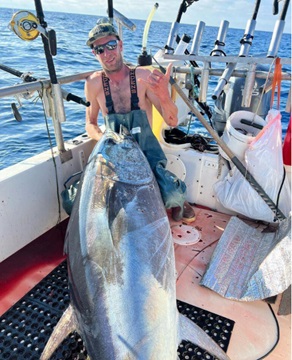 Ask any restaurateur along the coast from here to San Francisco who Travis Meyer is, and they’ll likely tell you he’s the halibut whisperer. He supplies restaurants from Isla and Crudo e Nudo in Santa Monica to Laquita in Santa Barbara, Industrial Eats in Buellton, Mattei’s Tavern in Los Olivos, Full of Life Flatbread in Los Alamos and several in Paso Robles. His halibut, sea bass, and bluefin tuna are the stuff of legend in an increasingly competitive world of commercial fishing. “Travis has connected us directly to the pristine marine life that surrounds the Channel Islands,” Jason Paluska, when we first met, he delivered a beautiful California halibut that was dispatched using the ike jime method. It was hands down the freshest and cleanest bite of raw fish that I had ever tasted.” That all changed about a week ago on a midnight run to Hollister Ranch, when Meyer lost his boat, his livelihood and nearly his life. Here, the seasoned fisherman tells the tale in his own words: >>click to read<< 11:31
Ask any restaurateur along the coast from here to San Francisco who Travis Meyer is, and they’ll likely tell you he’s the halibut whisperer. He supplies restaurants from Isla and Crudo e Nudo in Santa Monica to Laquita in Santa Barbara, Industrial Eats in Buellton, Mattei’s Tavern in Los Olivos, Full of Life Flatbread in Los Alamos and several in Paso Robles. His halibut, sea bass, and bluefin tuna are the stuff of legend in an increasingly competitive world of commercial fishing. “Travis has connected us directly to the pristine marine life that surrounds the Channel Islands,” Jason Paluska, when we first met, he delivered a beautiful California halibut that was dispatched using the ike jime method. It was hands down the freshest and cleanest bite of raw fish that I had ever tasted.” That all changed about a week ago on a midnight run to Hollister Ranch, when Meyer lost his boat, his livelihood and nearly his life. Here, the seasoned fisherman tells the tale in his own words: >>click to read<< 11:31
Fishermen threaten to ‘stop fishing’, take legal action over massive block of offshore wind farms
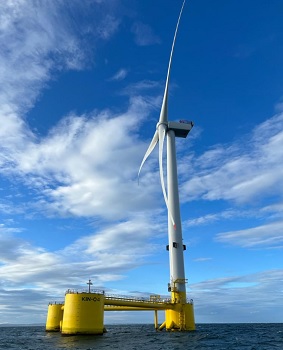 Fishing boat owners in the north are threatening to stop fishing, and file injunctions with Europe, over the proposed creation of a massive block of offshore wind farms, which they have claimed will turn rich fishing areas into comparative deserts. The situation is that six new windfarms are planned for the areas off Sines, Ericeira, Figueira da Foz, Leixões and Viana do Castelo, where a small offshore wind farm has been operating since 2020, with three turbines that have already produced clean energy to serve the equivalent of 60,000 people but have also shown fishermen how fish have effectively ‘vanished’ from the waters. Earlier this year, 15 associations went public with the warning that if two wind farms are sanctioned off Viana do Castelo (as is the plan), authorities may as well issue “a death certificate for fishing”, as all the fish – on which hundreds of boats/ families and local businesses depend will disappear. >>click to read<< 10:08
Fishing boat owners in the north are threatening to stop fishing, and file injunctions with Europe, over the proposed creation of a massive block of offshore wind farms, which they have claimed will turn rich fishing areas into comparative deserts. The situation is that six new windfarms are planned for the areas off Sines, Ericeira, Figueira da Foz, Leixões and Viana do Castelo, where a small offshore wind farm has been operating since 2020, with three turbines that have already produced clean energy to serve the equivalent of 60,000 people but have also shown fishermen how fish have effectively ‘vanished’ from the waters. Earlier this year, 15 associations went public with the warning that if two wind farms are sanctioned off Viana do Castelo (as is the plan), authorities may as well issue “a death certificate for fishing”, as all the fish – on which hundreds of boats/ families and local businesses depend will disappear. >>click to read<< 10:08
Survival and grief: The story of the Ross Cleveland tragedy
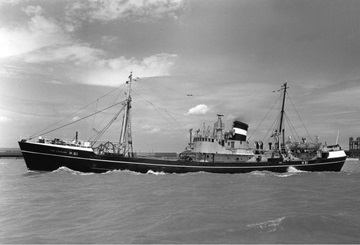 Fifty-five years ago last month the public inquiry into the loss of the Hull trawler Ross Cleveland and the deaths of 18 men began at Hull City Hall. It was the last time Harry Eddom ever spoke publicly about how he survived the disaster that claimed the lives of the rest of the ship’s crew eight months earlier. During the three-week inquiry, his dramatic witness testimony was only rivalled by evidence given by Len Whur, skipper of another Hull trawler Kingston Andalusite, the nearest vessel to the Ross Cleveland at the time of the tragedy. Whur was desperately trying to save his own ship after being caught in the worst storm experienced off the north-west Icelandic coast in living memory when he received a radio message from his cousin Phil Gay, skipper of the Ross Cleveland. Photos, >>click to read<< 08:26
Fifty-five years ago last month the public inquiry into the loss of the Hull trawler Ross Cleveland and the deaths of 18 men began at Hull City Hall. It was the last time Harry Eddom ever spoke publicly about how he survived the disaster that claimed the lives of the rest of the ship’s crew eight months earlier. During the three-week inquiry, his dramatic witness testimony was only rivalled by evidence given by Len Whur, skipper of another Hull trawler Kingston Andalusite, the nearest vessel to the Ross Cleveland at the time of the tragedy. Whur was desperately trying to save his own ship after being caught in the worst storm experienced off the north-west Icelandic coast in living memory when he received a radio message from his cousin Phil Gay, skipper of the Ross Cleveland. Photos, >>click to read<< 08:26






